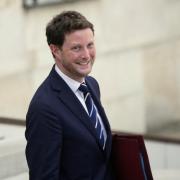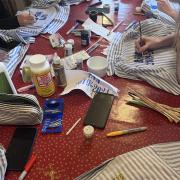
Last week I was lucky enough to tune into a presentation organised by the Girls Day School Trust South Hampstead High School given by our former Bank of England Governor, Canadian Mark Carney and his wife Diana, both economists and committed to addressing climate change.
They were invited to talk about how we can achieve our commitment to reaching zero net carbon emissions by 2050, to bring down the 51 billion tonnes of greenhouse gases that we emit globally each year.
Mark and Diana’s crusade is inspired by Microsoft founder Bill Gates’s recent book “Climate Change: How to Avoid Disaster”, which offers urgent solutions to the global problem of climate change. Diana, who takes her turn first, endorses the urgency of Bill Gates’s plea to get everyone engaged in the fight to bring down carbon emissions; she appeals not just to Government to set policy to address the issue, but to every employer, school, individual, business owner, city and State to do not just one thing but many things, every day, and to keep on doing it, to collectively achieve the common aim of bringing carbon emissions down and reverse the steady rise in the global temperature.
Diana explains how a shift in just one and a half degrees, less than the desired two or even three degrees but perhaps more realistic and so more achievable, will bring untold benefits to over two billion people, in terms of disease prevention, food production and sea levels; and even to coral reefs, among countless other benefits.
Encouraged by recent successes such as the US Biden Administration rejoining the Paris Agreement on climate change; and 1500 corporations having already making net zero pledges last year, Diana is optimistic that new behaviours will take hold. Just the fact of setting policy aims with targets some years away, she explains, produces immediate change, a “nudge” in behaviour. People don’t wait till that end date to start changing their car, their boiler, eating less meat; the thinking takes hold and propagates better choices, to achieve that aim. We must collectively be prepared to reverse habits and policy that have caused over-grazing on common land, over-fishing, undervaluing our natural resources and creating a throwaway, convenience society.
To help change those ingrained habits, Mark explains, government must regulate industry and business, and every financial decision (investment, economic policy) must take climate change into account. Somehow, we must find ways to control consumerism without stifling economic growth; an especially important consideration as we come out of the pandemic.
The most surprising thing about the talk? To hear Diana respond to a question on energy policy by stating that we shouldn’t turn our backs on nuclear energy out of hand, but instead work with nuclear as part of the solution to our energy sources and try to find better, safer methods to run it such as Small Modular Reactors, which don’t need such vast tracts of land to house them and dispose of their waste more effectively.
Diana and Mark make a very powerful, urgent and compelling case to get behind climate change NOW; to urge governments not to wait to be led by public opinion but to lead on climate change.
I asked choreographer and dance teacher Mair Howard-Jones what habit she has changed in the last 12 months to further the cause of avoiding climate change, and one thing she plans to do further this year, consistently, to add to that. “I’ve asked my students, as they wear out or grow out of their dance shoes, to replace them with shoes from our supplier using fabrics from the Healthy Seas project that recycles fishing nets; and my next one? To continue to use technology (thank you Zoom!) to give dancers access to my classes and avoid unnecessary journeys”.
I think to myself that if every household, every person, every group, company or association can make conscious choices to change its behaviours for good, we have some chance of handing future generations a cleaner, more lasting planet and of setting us on a better course to sustainability. Which brings me to my own choices – no heavily packaged cosmetics, and making all short local journeys on foot or on my bicycle!



























